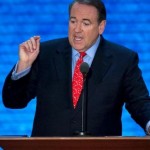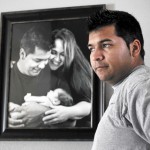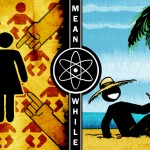Every Monday in Citizenship Confusion, Alan Noble discusses how we confuse our heavenly citizenship with citizenship to the state, culture, and the world.
Last week, Trevin Wax posted a great interview he did with Peter Leithart, one of the most well-read and thoughtful theologians of our time (even though I don’t always agree with him). The occasion was the release of Leithart’s new book, Between Babel and the Beast, in which he advocates a nuanced understanding of “empire.” I’ll let you read the whole, insightful interview, but what struck me was his adamant warnings against Americanism–essentially, civic religion–and his practical recommendations for combating this heresy.
One of the weaknesses in my column has been my tendency to offer far more criticism of Christian political rhetoric than praise [here’s why], more admonitions than exhortations, so Leithart’s suggestions for a positive way forward are welcome. The heart of his argument resonants a lot with me and this column: Americanism, the great heresy of our country, must be challenged by a teaching of the Word that helps believers to not confuse their earthly citizenship for their heavenly one. In many ways, this interview confirms the value (if not the quality) of what we’ve been doing in this column.
While Leithart admits that there are many ways in which America is exceptional, he also notes that this exceptionalism has been transformed into a religion by many Christians, with dangerous results:
“Americanism has a way of reading the Bible (with America sometimes playing a prominent role in the biblical story as the ‘new Israel’), an eschatology (America is the ‘new order of the ages’ and the ‘last best hope of mankind’), a doctrine of political salvation (everyone becomes like us, and all will be well), and, since the civil war, a view of sacrifice (American soldiers give their lives, and take the lives of enemies, to make the world peaceful and free).”
In my column, I have tried to document and challenge these and similar manifestations of Americanism as I have witnessed them in my community: conservative evangelicals. For example, my post last week on the abuse of 2 Chronicles 7:14, or this discussion of public prayer in political contexts, or this critique of attempts to co-opt Christian Just War theory in the Air Force.
Leithart has a number of recommendations for the church to combat Americanism, and they all center around the life of the church. For example, he argues for the importance of church discipline–which is unsurprising since many conservative evangelicals have championed biblical discipline, but his application of this discipline is unusual: “the church needs to re-assert its authority to tell Christians when they can and cannot kill.” His concern here is that the church has ceded to the State the right to determine when violence is justifiable. Aside from liberal denominations, few (if any) church bodies have been willing to publicly condemn State or State sanctioned violence–except in the case of abortion.
The rationalized and sanctioned use of violence, particularly killing, by the State is a large part of what makes Americanism a false religion with the State as the godhead. State violence is the only form of violence permitted and praised in our society, which is fine when the State’s violence is just, but when it is unjust, the Church has an obligation to speak out. And when the Church grants to the State the right to determine who deserves to live and die and when killing is just, when we unquestioningly praise our government and our troops for “successfully” killing the enemy in combat, we are treating the State as the ultimate arbiter of life and death, not God and His truth.
Leithart also claims that we need to “cultivate the communal life of the church,” specifically Communion, which acts as an allegiance-shaping ritual to counter the powerful secular rituals of our culture.
While church discipline and the Lord’s Supper are essential for the church to rightly understand its place in the world, Leithart stresses that the most important challenge to Americanism is the proper teaching of the Word:
“Negatively, teaching the Bible means teaching Christians that they are Christians first before they are Americans; it means teaching them that their Christian brothers in Iran and Iraq are closer ‘kin’ than American unbelievers. Teaching the Bible means attacking the idolatries associated with Americanism. Teaching the Bible means teaching people not to kill, even if the American government says it’s OK.”
Although I have not always done it well, or applied the Word as much as I could, it has been my intention with this column (and most of my writing for CaPC) to do exactly what Leithart recommends–to address the importance of rightly understanding our citizenship so as to honor God and edify and bless our neighbors by examining the myriad of ways in which we are tempted to embrace Americanism in our culture. However, advocating that Christians model a more charitable public political discourse by not settling for simplistic political narratives, or deception for the “greater good,” or dehumanizing mockery of the Other side–demanding honest, nuanced engagement with our world–takes research and time. It takes the editorial, spiritual, and intellectual support of our writers and editors. And if this work is to continue at CaPC and grow in quality and influence, it will require more support.
If we take seriously Leithart’s exhortation, we should let it redefine the role of the State in our lives by drawing us to partake in fellowship and Communion and the Word. As Wax points out, Leithart’s position is likely to frustrate both sides of the political spectrum, but it seems to me to be precisely the kind of message we need to hear in an election year.











